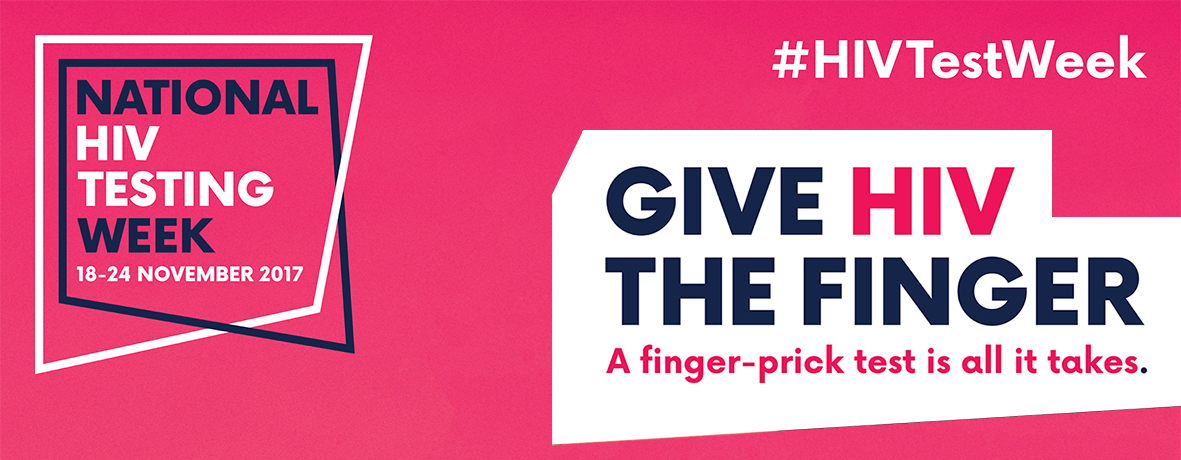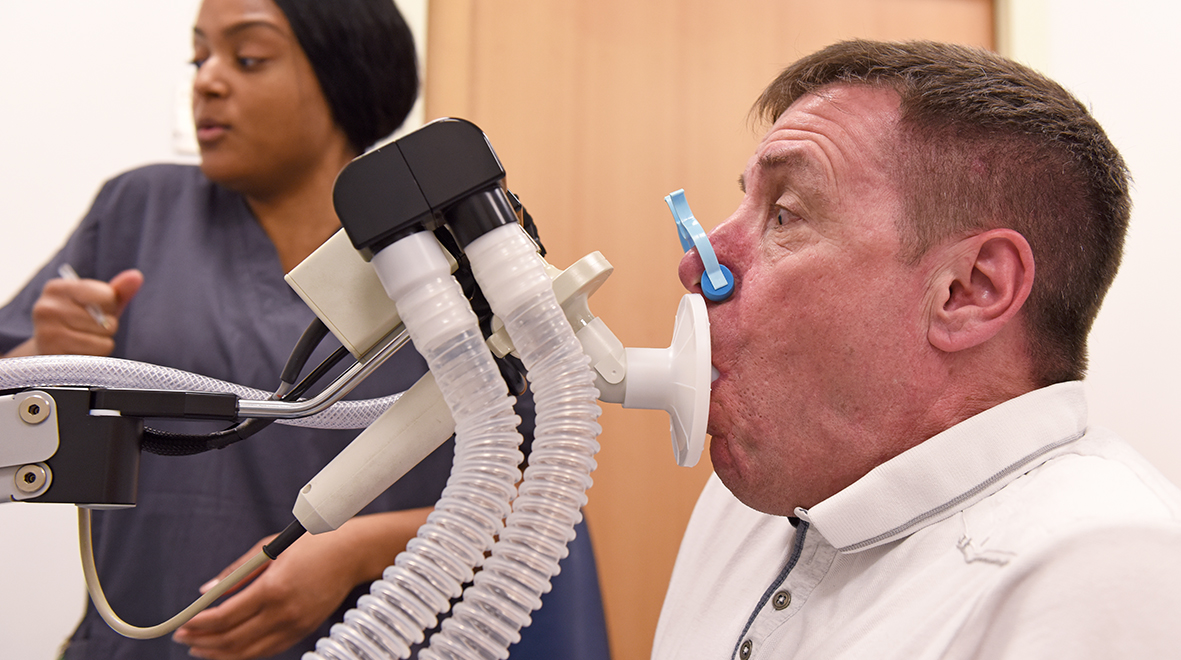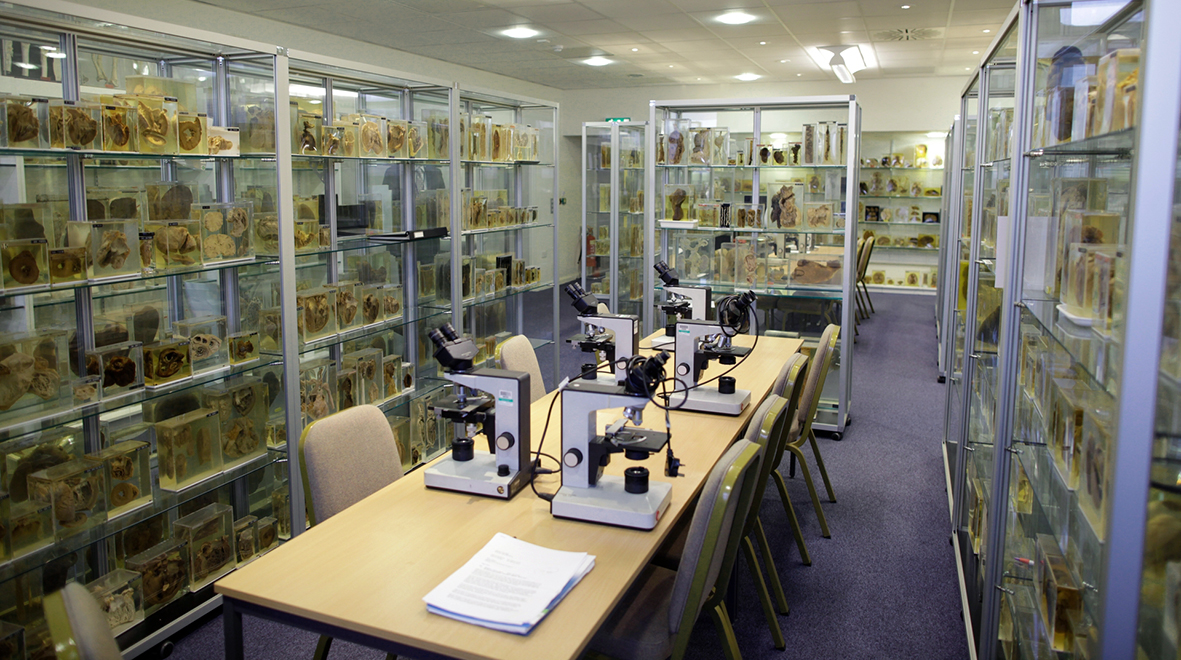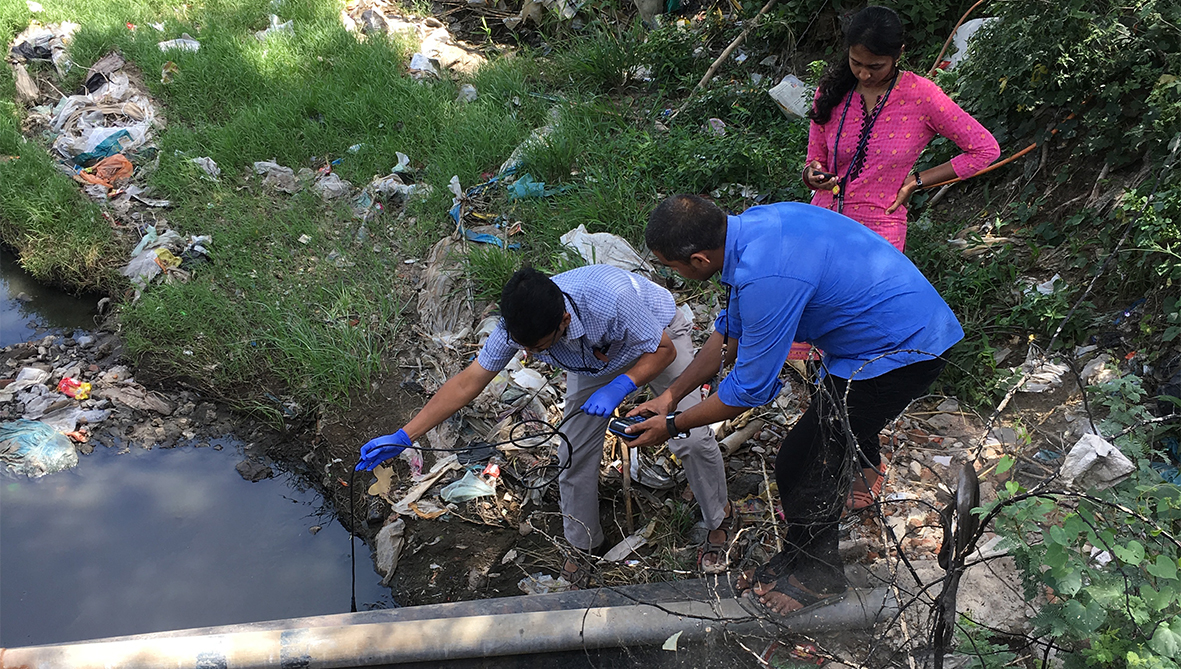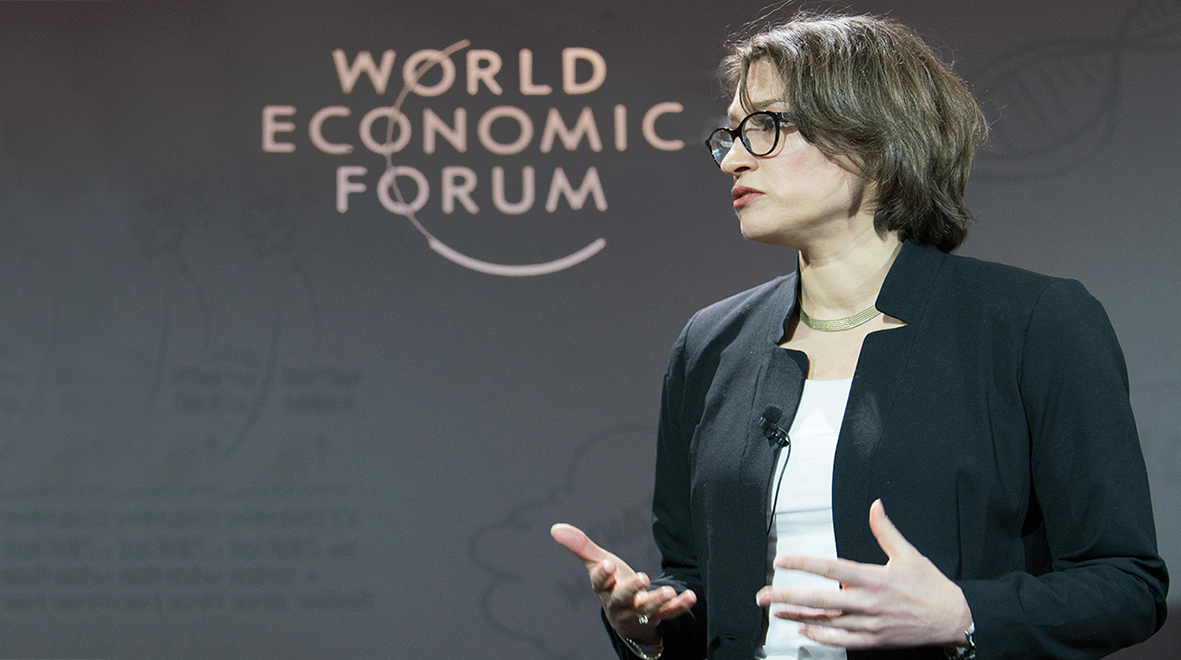
Katharina Hauck speaking at the Annual Meeting 2017 of the World Economic Forum in Davos (Copyright by World Economic Forum / Sikarin Thanachaiary)
To mark World AIDS Day 2017, we have published a series of blog posts to highlight the important and varied research that takes places at Imperial. Three experts from Faculty of Medicine share their interest in HIV/AIDS which spans from the elusive vaccine to the economics of the epidemic.
World AIDS Day takes place annually on 1 December as an opportunity for people worldwide to unite in the fight against HIV and to show support for people living with HIV/AIDS.
The role of an economist in the HIV epidemic
As an economist, my research on HIV takes a higher-level population view. We advise policy makers in governments and international organisations on the cost-effectiveness of preventive and treatment interventions in the countries most ravaged by HIV. By estimating the benefits and costs of interventions, we can identify the ones that promise greatest improvements in population health. (more…)

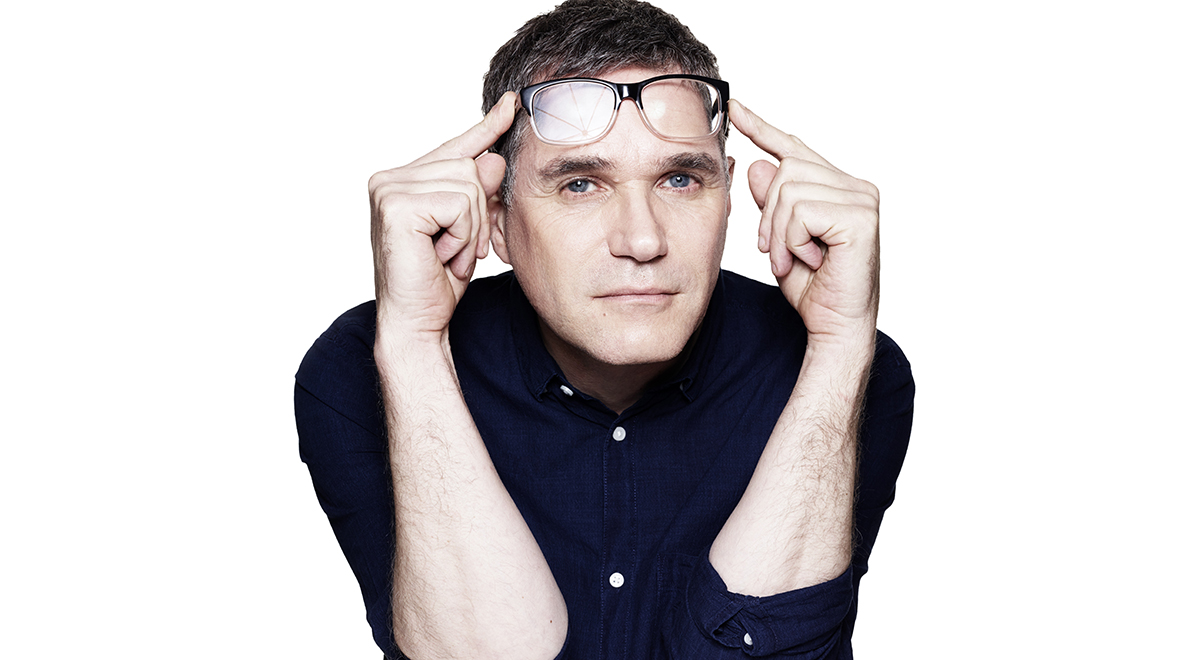
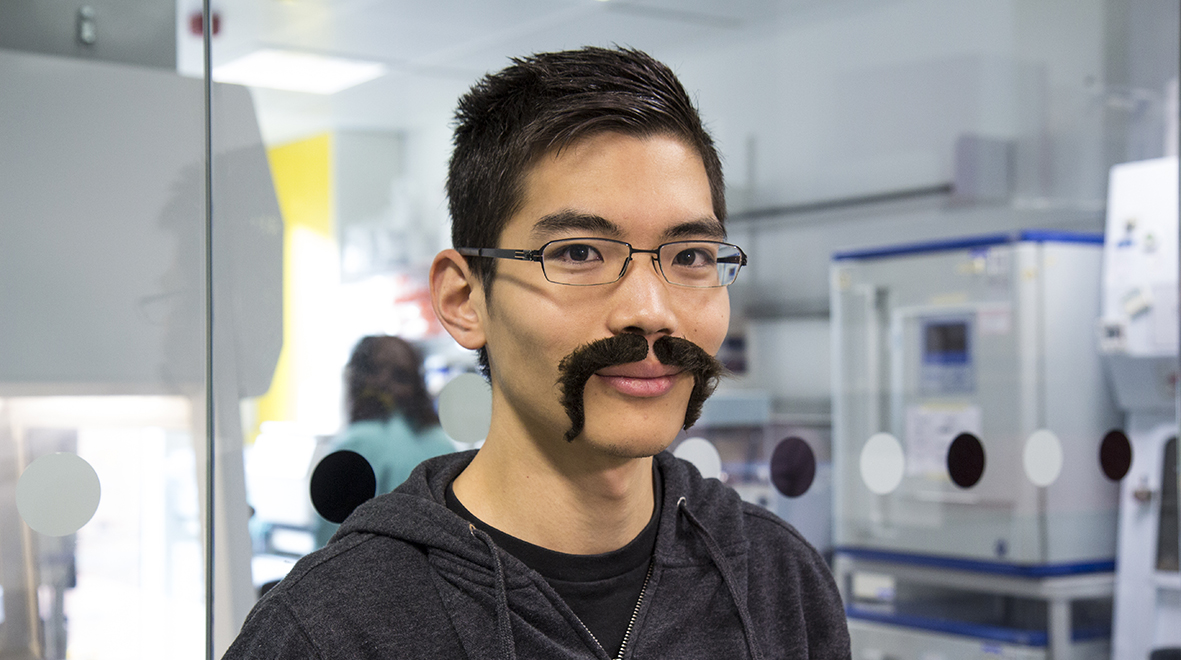
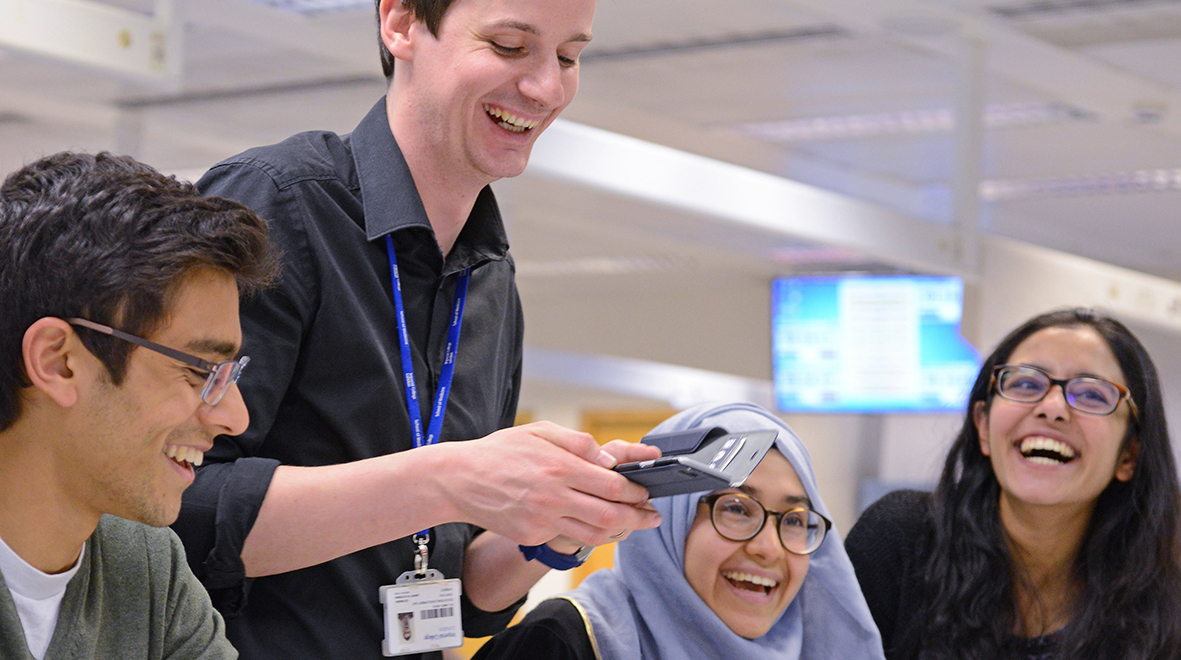 James Moss, a Teaching Fellow, provides an insight into his role, from exam marking to supporting research projects.
James Moss, a Teaching Fellow, provides an insight into his role, from exam marking to supporting research projects. 